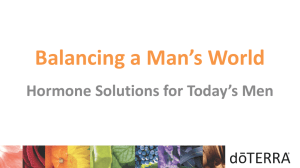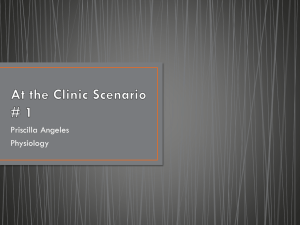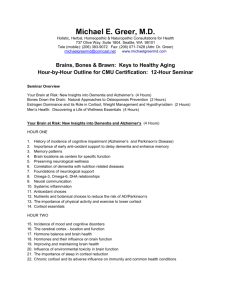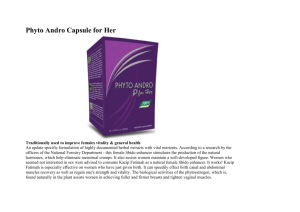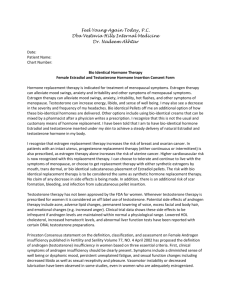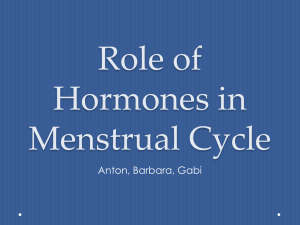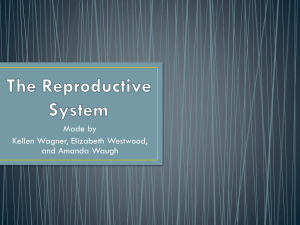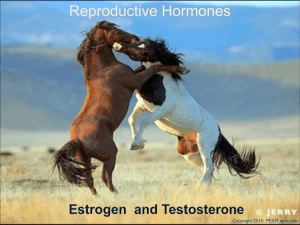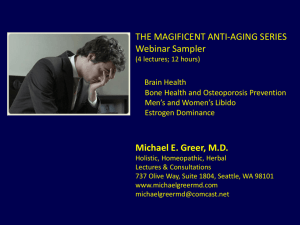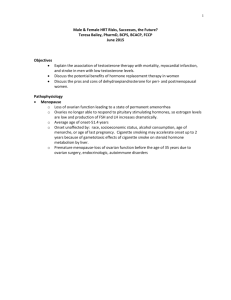File - Michael E. Greer, MD
advertisement
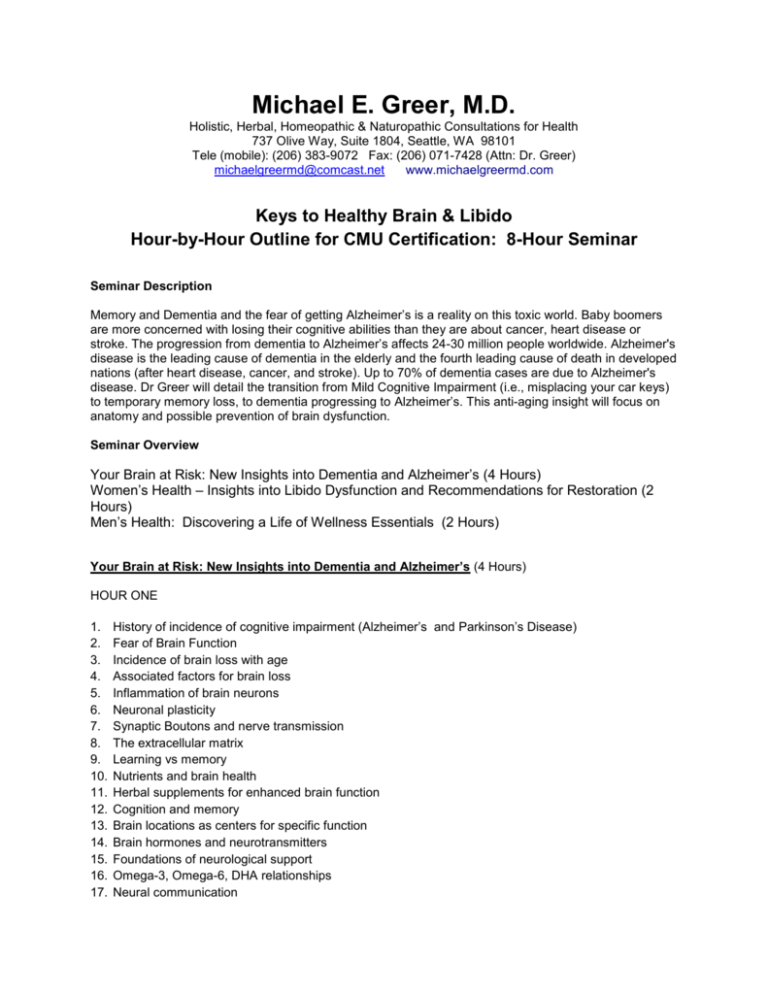
Michael E. Greer, M.D. Holistic, Herbal, Homeopathic & Naturopathic Consultations for Health 737 Olive Way, Suite 1804, Seattle, WA 98101 Tele (mobile): (206) 383-9072 Fax: (206) 071-7428 (Attn: Dr. Greer) michaelgreermd@comcast.net www.michaelgreermd.com Keys to Healthy Brain & Libido Hour-by-Hour Outline for CMU Certification: 8-Hour Seminar Seminar Description Memory and Dementia and the fear of getting Alzheimer’s is a reality on this toxic world. Baby boomers are more concerned with losing their cognitive abilities than they are about cancer, heart disease or stroke. The progression from dementia to Alzheimer’s affects 24-30 million people worldwide. Alzheimer's disease is the leading cause of dementia in the elderly and the fourth leading cause of death in developed nations (after heart disease, cancer, and stroke). Up to 70% of dementia cases are due to Alzheimer's disease. Dr Greer will detail the transition from Mild Cognitive Impairment (i.e., misplacing your car keys) to temporary memory loss, to dementia progressing to Alzheimer’s. This anti-aging insight will focus on anatomy and possible prevention of brain dysfunction. Seminar Overview Your Brain at Risk: New Insights into Dementia and Alzheimer’s (4 Hours) Women’s Health – Insights into Libido Dysfunction and Recommendations for Restoration (2 Hours) Men’s Health: Discovering a Life of Wellness Essentials (2 Hours) Your Brain at Risk: New Insights into Dementia and Alzheimer’s (4 Hours) HOUR ONE 1. 2. 3. 4. 5. 6. 7. 8. 9. 10. 11. 12. 13. 14. 15. 16. 17. History of incidence of cognitive impairment (Alzheimer’s and Parkinson’s Disease) Fear of Brain Function Incidence of brain loss with age Associated factors for brain loss Inflammation of brain neurons Neuronal plasticity Synaptic Boutons and nerve transmission The extracellular matrix Learning vs memory Nutrients and brain health Herbal supplements for enhanced brain function Cognition and memory Brain locations as centers for specific function Brain hormones and neurotransmitters Foundations of neurological support Omega-3, Omega-6, DHA relationships Neural communication 18. Systemic inflammation HOUR TWO 1. 2. 3. 4. 5. 6. 7. 8. 9. 10. 11. 12. 13. 14. 15. 16. 17. 18. 19. 20. 21. 22. Estrogen Leptin and heart disease Estrogen and its association with Alzheimer’s Estrone, estradiol factors for metabolism Detoxification pathways Alzheimer’s symptoms Mitochondrial link to Alzheimer’s Free radicals and antioxidants Aging and increased life expectancy Herbal function in memory restoration Parkinson’s Disease Antioxidant choices Nutrients and botanical choices to reduce the risk of AD/Parkinson’s The importance of physical activity and exercise to lower cortisol Cortisol essentials Incidence of mood and cognitive disorders Hormone balance and brain health Hormones and their influence on brain function Improving and maintaining brain health with Omega-3s Influence of environmental toxicity in brain function The Importance of sleep in cortisol reduction Chronic cortisol and its adverse influence on immunity and common health conditions HOUR THREE 1. 2. 3. 4. 5. 6. 7. 8. 9. 10. 11. 12. 13. 14. Proanthocyanidins and polyphenols Description and purpose of mitochondria Mitochondrial aging Rising U.S. life expectancy Stress and aging Nutritional support CoQ10 and mitochondrial energy Antioxidant liver detoxification foods Whole foods mechanism of action Enhancing mitochondrial function New insights into mitochondrial influences Mitochondrial damage and influences on repair Oxidative stress and associated disease Nutritional supplements and recommendations for mitochondrial restoration HOUR FOUR 1. Herbal Adaptogens: In-depth review of multiple adaptogens and their actions 2. Nutrient antioxidants a) Gingko b) Green Tea 3. Food sources of antioxidants 4. Physiological functions of phytonutrients 5. Brain and neurological products a) Nervous system products b) Endocrine system products c) Antioxidants 6. The anti-inflammatory diet a) Nutritional brain food 7. Adrenal adaptogenic herbs 8. Protomorphogens 9. Closing words Women’s Health – Insights into Libido Dysfunction and Recommendations for Restoration (2 Hours) HOUR FIVE 1) 2) 3) 4) 5) 6) 7) 8) 9) 10) 11) 12) 13) 14) The language of cells Hormone definition Multifactorial loss of libido Neurotransmitters for libido and sex Causes of hormone imbalance Age and cellular health Boosting libido at midlife Primer 101 on hormones Symptoms of female hormone imbalance Laboratory values Hypothalamic function LH and functioning adrenals Major and minor hormones DHEA a) Importance and correlation 15) Estrogen and its metabolism 16) Sex hormone binding globulin 17) Nettle root and SHBH HOUR SIX 1. Hormone imbalance a) Thyroid b) Estrogens c) Progesterones 2. Causes of estrogen dominance 3. Signs and effects of estrogen dominance 4. Estrogen metabolism a) Indole-3 Carbinol 5. Progesterone need and importance 6. Strategies of decreasing estrogen a) Liver metabolism b) Omega-3 importance to decrease inflammation 7. Estrogen dominance herbs 8. Estrogen dominance botanicals 9. Testosterone enhancing herbs 10. The importance of fiber 11. The importance of detoxification a) Detoxification pathways 12. Herbs and supplements to consider 13. Closing observations Men’s Health: Discovering a Life of Wellness Essentials (2 Hours) HOUR SEVEN 1. Establish the importance of testosterone a. Prevalence of low testosterone levels 2. Importance of testosterone in men and women 3. Decline in testosterone a. History of testosterone declination b. Insulin resistance 4. Effects of testosterone deficiency 5. Incidence of prostate cancer 6. C-Reactive protein a. Inflammatory cytokines 7. BPH 8. The role of GNRH 9. Aromatase enzyme 10. Estrogen dominance 11. Testosterone estrogen ratio 12. SHBG dynamics a. Herbs that alter SHBG attachment 13. Warnings about treatment with testosterone after cancer 14. DHEA importance 15. Progesterone importance 16. Testosterone evaluation and treatment a. Testosterone markers b. Testosterone deficiency effects HOUR EIGHT 1. 2. 3. 4. 5. Treatment with herbs and vitamins for suppression of estrogen and elevation of testosterone Nutrients Whole foods and nutritional value Antioxidants Natural approaches to enhance testosterone a) Aromatase inhibitor supplements b) Zinc c) Quercitin 6. Libido and testosterone enhancers a) Rhodiola b) Korean Ginseng c) Tribulus d) Damiana e) Ashwaganda f) Nettle Root
